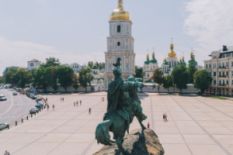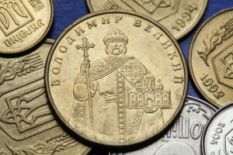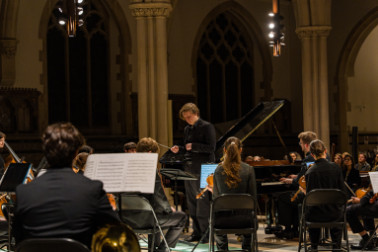It might be interesting for you to know a well-known historic fact for many Slavs that Prince Volodymyr (or Vladimir) baptized Rus in the tenth century. However, the actual process of Rus Christianization, the passing from the pagan religion, was started by Princess Olga. Undoubtedly, the adoption of a new religion is a large-scale, global event affecting the entire population of Kievan Rus. And the transition was very difficult, hard and long. After all, it is impossible to transform the world outlook of the population in a short period of time, let alone with ease.
Remarkable, that Kyivan Rus remained almost the only state where paganism reigned. Most of the European neighbors considered the Gentiles to be non-humans and barbarians. And this fact, in turn, had a negative effect on the international relations. Those times there a single system existed: one state, one prince, one God, whereas in the paganism there were many different Gods. There was also a need for a kind of religion, which would support the Prince power as well as in its subordination.
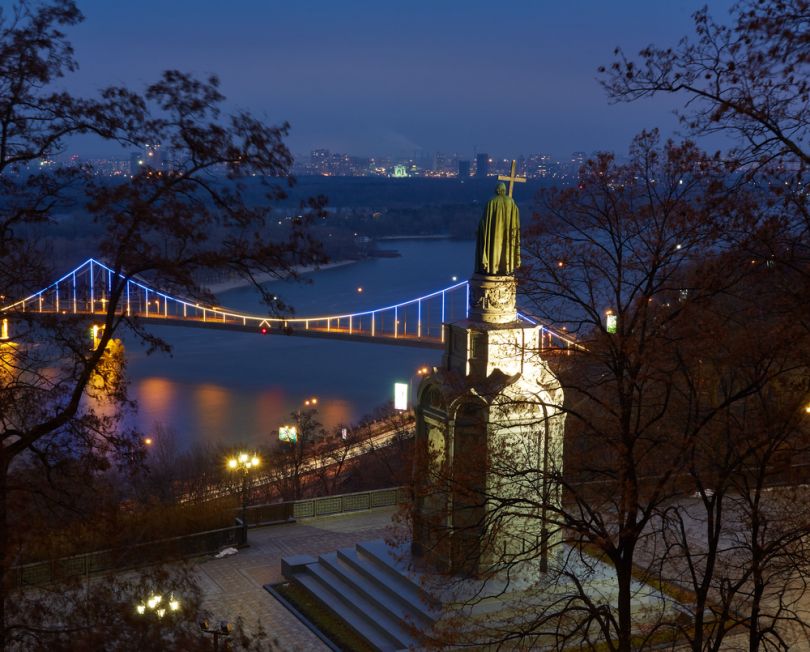
Paganism did not ensure the unity of the whole population. It could not explain what was happening in Rus social stratification meaning the emergence of rich and poor. After all, in paganism all people were considered equal to the forces of nature.
According to the chronicles, Prince Volodymyr was deciding for a long time which religion to choose for Rus. The choice was between Orthodoxy, Catholicism, Islam and Judaism.
But the prince himself approached the choice very seriously and responsibly. He thoroughly studied all possible religions in detail. In addition, representatives from every religion themselves came to the prince and tried to entice him.
Another religion that was rejected by Volodymyr was Judaism because of the fact that the Jews did not have their own territories, that meant it was the religion of weak people, unable to protect their native land.
Islam was also severely restricted in its dogmas in eating and drinking and was rejected we may suppose because of the ban on wine. The phrase, which the prince said on this, is simply legendary: "Rus’ joy is to eat and to drink".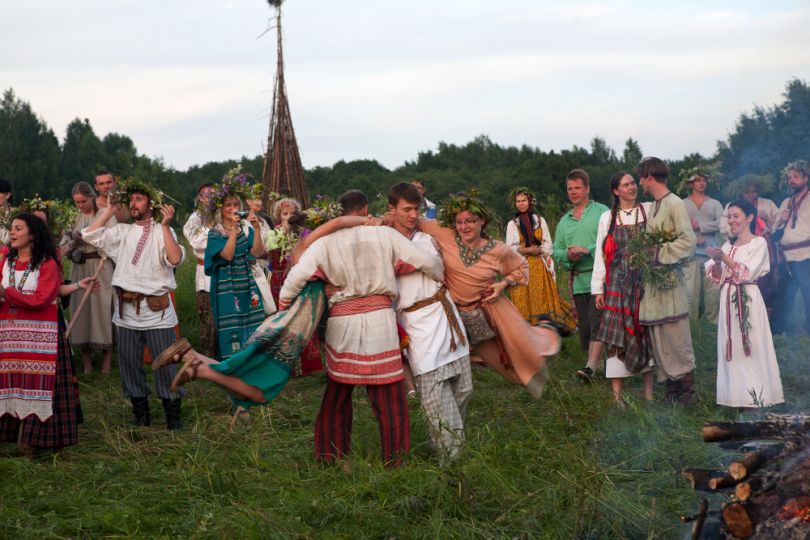
The Catholics stated that they had a fast in their power: "If anyone drinks or eats, everything is for the glory of God." However, Volodymyr sent them away, telling them: "Go where you came from, because our fathers did not accept this either." Also, the Catholic faith obliged to conduct divine services only in Latin, and this meant that the people simply would not understand a single word from the sacred texts. It is obvious that Vladimir found Catholicism as a religion not beneficial.
Actually, Volodymyr was not in a hurry with his choice. And this is not surprising, because he determined the fate of a large number of people for hundreds of years. Religion could not be changed simply when someone wanted. Therefore, the prince could be understood here.
Orthodoxy against the background of all the religions listed above looked like the best option: restrictions on food and drink were given only in fasting, worship services could be conducted in their native language, the birthplace of the Orthodox Church - Byzantium - a powerful state of that time. Also it is worth to remember that with the Byzantine Empire, Rus had established trade links (remember, at least, the famous path "From the Varangians to the Greeks"), who promised to become stronger after Epiphany.
Still, Volodymyr considered the stories of the ambassadors to be an insufficient condition for the choice of faith. It was decided to further test the faith by visiting the services of Muslims, Germans and Greeks. When, after visiting Constantinople, the envoys returned to Kyiv, they enthusiastically informed the prince: "They did not know where we are - in heaven or on earth." As a result, Vladimir made a choice in favor of Orthodox Christianity.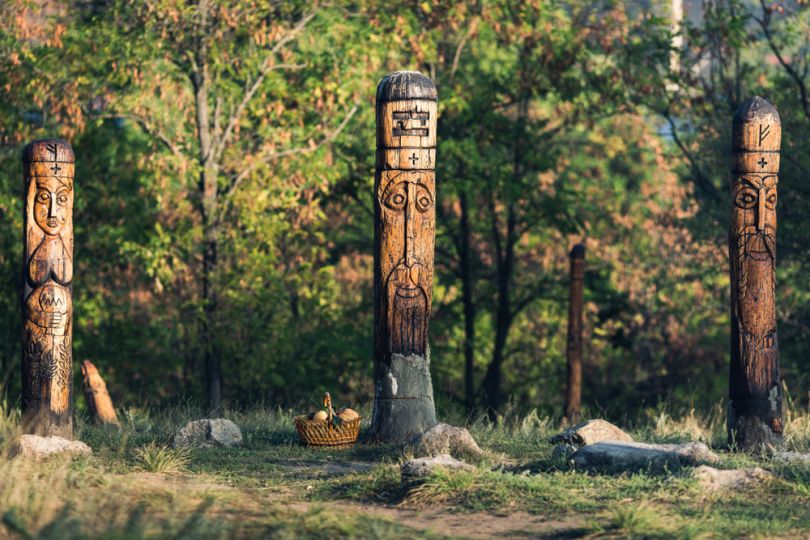
There is also an opinion that this desire was contributed by the prince's desire to marry princess Anne - the sister of the Emperor of Byzantium - Basil II, but neither she nor the Byzantine aristocracy could allow a pagan prince - a barbarian to marry an Orthodox princess and they set a condition for which Volodymyr had to accept Christianity before marriage.
Therefore, Christian commandments and the basic provisions almost fully met the needs of a young, not yet strengthened state. This, for example, love of neighbor, prohibition of murder and theft, respect for elders.
So, religion was chosen. Then a long process of turning people into a new faith started. Primarily, Volodymyr was baptized. There are several versions where the prince was baptized. According to the most common, he turned to a new faith in Kyiv, but the version on which this event took place in the border town of Korsun (also Chersonese) looks more plausible. After their return to Kyiv, firstly the boyars were baptized in the waters of the Dnipro River, and only then ordinary people. Also the destroyed idols of pagan gods were sent downstream on the Dnipro, and in places of the temples the first Kyiv cathedrals were laid. Almost immediately after Kyiv, Christianity was taken by Novgorod, Chernihiv, Belgorod, Vladimiro-Volyn, Polotsk and Pereyaslav.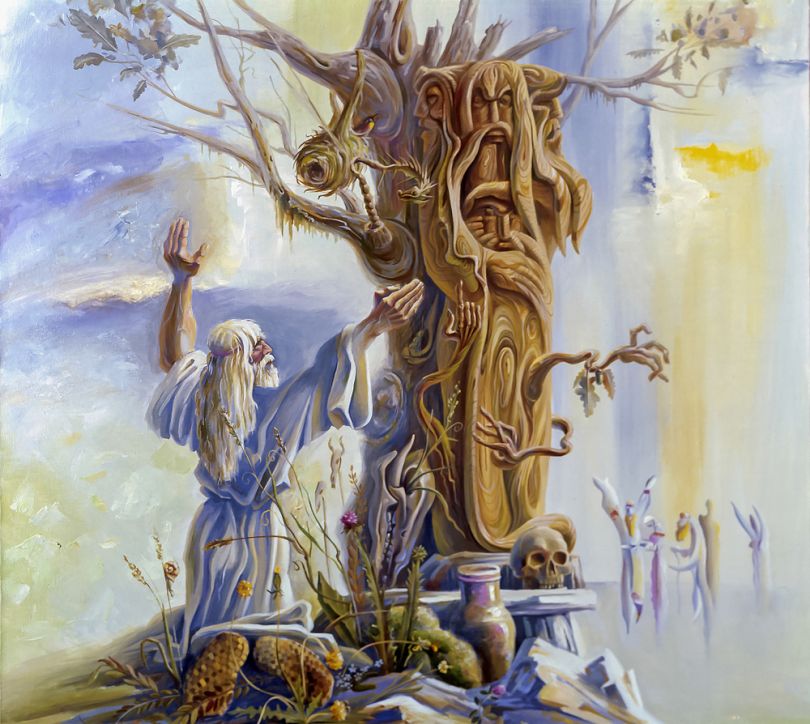
Still, not everywhere this process went relatively peacefully, as it was happening in Kyiv. For example, in Novgorod people did not want to accept a new faith, which was significantly different from the pagan. After all, the power of the prince in this way tried to get into the most intimate and close, that a person can have - in his faith. Things got to the point of turmoil. Pagans who did not want to be baptized, fled into the woods and killed priests. Those who did not go voluntarily were forced into the river. However, the policy of the state, although it was violent, but not brutal. The people resisted for a long time and the troops had to enter the city, with the help of whom the supporters of Christianity together with the priests turned the Novgorodians into a new faith. But it was rather an anti-Kyivan act than an anti-Christian one.
The Rostov and the Murom lands resisted the longest, until the 12th century. The proponents of paganism moved there - away from the now-Orthodox capital of Rus. Although in Kyiv, despite the baptism, many secretly worshiped the old gods.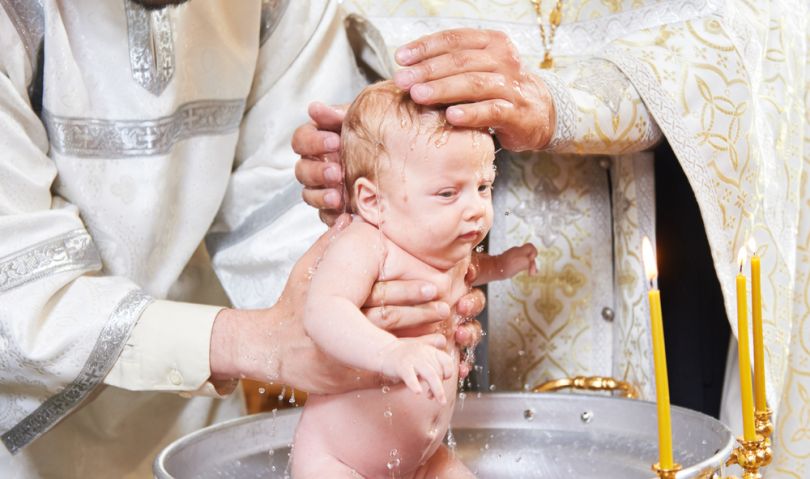
Finally, paganism in Rus was not eradicated, even though this was fought until the 12th century, and it partly "merged" with Christianity. This fact distinguishes Rus Orthodoxy from the classical.
The adoption of Christianity in the life of the Slavs have had both positive and negative consequences.
The positive might be regarded as the following:
1. Slavic lands finally, in addition to a simple unification of the strongest at hand, began to unite under the spiritual and moral principle. Although this process took several centuries, but the beginning was laid.
2. The church raised the importance of princely power, struggling with views of the Prince as a purely military chapter, who can be driven away or even killed.
3. Rus joined the Western European and Byzantine Christian culture and traditions.
4. The international authority of Kyivan Rus has grown.
5. The church influenced the strength of the family relations of the Slavs, influenced their morality.
6. Baptism influenced the economic life of Kyivan Rus: trade relations with Byzantium and some countries of Western Europe were strengthened. As a result, agricultural production began to improve and increase.
7. There was a push in the country's culture: the construction of stone architectural structures began, iconography and writing started to develop. Many church works were translated into the Slavonic language. 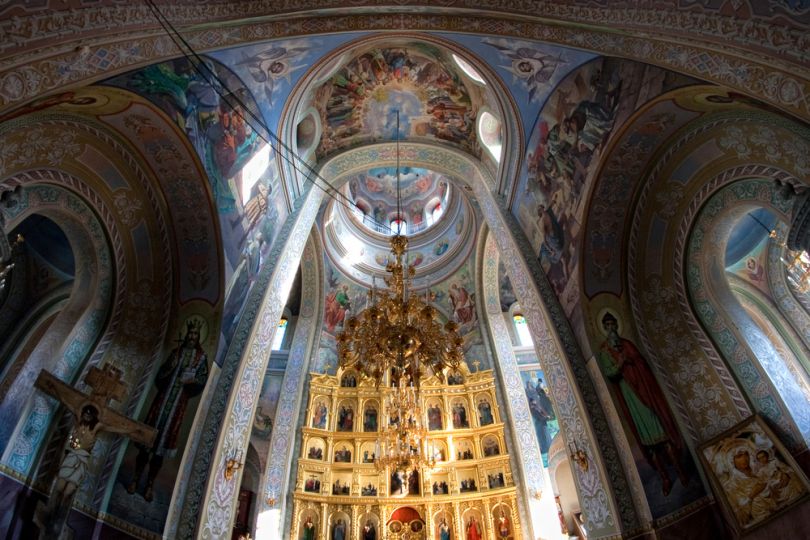
The latter, coupled with the construction of schools with churches and monasteries, raised the level of Slavs education.
But there were also some negative consequences:
1. A whole layer of pre-Christian culture was destroyed - many monuments of that era were demolished.
2. There was a spiritual and cultural isolation from the countries of Western Europe, professing Catholicism. In medieval times, when religion played a decisive role in people's consciousness and interethnic contacts, this was of enormous importance. Therefore, the main sphere of cultural contacts in Rus is quite a narrow group of Orthodox countries and peoples - Byzantium, Serbs, Bulgarians, Moldovans and Wallachians (the ancestors of modern Romanians), Georgians. When in the 15th century Byzantium and all other Orthodox nations were conquered for many centuries by the Turks, the Rus state was the only independent in the world of the Orthodox countries, after which the isolation was further intensified.
This is one of the fundamental features that contributed to the formation of a different socio-cultural way, compared with most countries in Europe.
Overall, we may recapitulate that the adoption of Christianity had rather a favorable impact on Rus, since it allowed emerging as a state at a new political level, and among the people to raise its moral and cultural values.
Archive 2018-2021
Ukrainian Mix of Pagan Traditions and Christianity
Modern Ukrainian culture is based on the historical fusion of pagan traditions and Christianity. The roots of this mixture are very deep and they still influence the cultural development of the nation.

